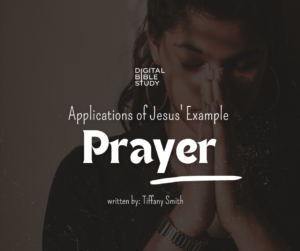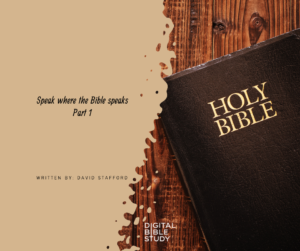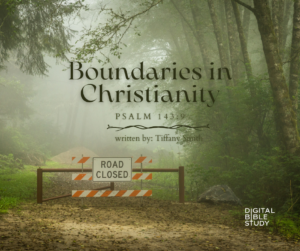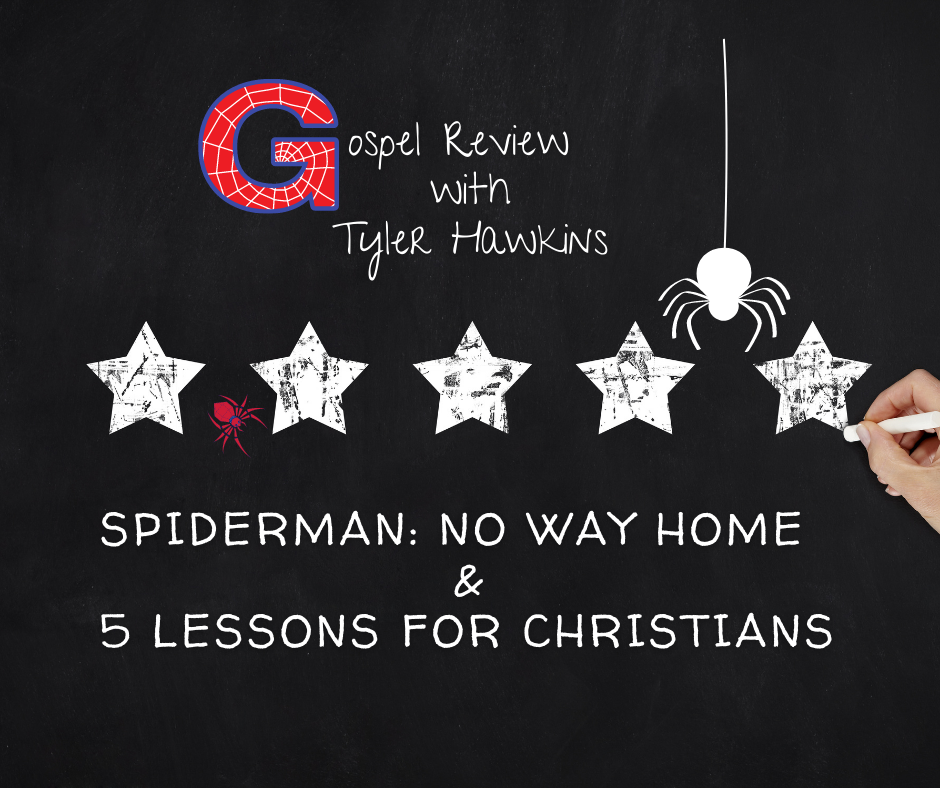Gospel Review: Spider-man No Way Home’s Five Lessons for Christians
Today’s review is on the record breaking, global phenomenon Spider-man: No Way Home (NWH). NWH is arguably the greatest Marvel movie of all time. I make this assertion from both a theatrical and a Christian perspective. Theatrically, it is a visual and story-telling masterpiece weaving together famous characters from former films with Marvel’s latest cast in a single, seamlessly captivating plot. More important for our purposes, though, NWH uniquely showcases the type of heart all Christians should have in their daily walk, their love for God, and their love for others. In this review, we will consider the top five ways Spider-man: No Way Home represents Biblical values, but first two warnings must be issued.
WARNINGS
Content Warning. NWH is rated PG-13 for language, violence, and sexual innuendo. It may not be appropriate for your children and will not be appropriate for anyone seeking to avoid such malfeasance at all costs. NWH contains the same degree of “non-G” rated content as former Spider-man movies and most of Marvel’s recent live action films.
Spoiler Warning: Major plot details and twists will be referenced.
#5 – Gal 6:1-2 – Bearing a Brother’s Burden
Gal 6:2 – bear one another’s burdens, and so fulfill the law of Christ.
At the end of the movie, Tom Holland’s Spider-man is standing in front of Tobey Maguire and Andrew Garfield, two older and more mature Spider-men. Holland is emotionally overwhelmed as he attempts to put his gratitude towards them into words. They helped him grieve the death of his aunt, design weapons to defeat the onslaught of enemies, and overcome his temptations to exact wrathful vengeance against the Green Goblin. As Holland stumbles over his attempts to find the right words, Maguire’s eldest Spider-man extends a comforting hand and says, “it’s ok, it’s what we do.”
Maguire’s words sent me to Galatians 6:1-2, where Paul is admonishing Christians to “bear one another’s burdens.” In the immediate context, the “burdens” are temptations to sin. When we know a fellow Christian is struggling with a temptation, we have a divinely appointed obligation to help them. In a broader sense, however, this type of aide giving relationship goes beyond just temptations and extends to being full-time supporters of one another. We are to “rejoice with those who rejoice; weep with those who weep” (Rom 12:15). In NWH, all of these occurred. When tears were shed by one, they were shared by all. When victories occurred for one, they were celebrated by all. And when one was on the precipice of falling into sin, the others jumped in without hesitation to prevent the sin and restore a righteous heart. NWH exemplified the character of “bearing one another’s burdens,” and should challenge us to consider if helping a brother is so second nature to our own character that it could be rightly said, “it’s just what we do.”
#4 – Matt 11:29 – Meekness
Matt 11:29 – Take my yoke upon you, and learn from me, for I am gentle and lowly in heart, and you will find rest for your souls.
In my opinion, the real showstopper in NWH was Willem Dafoe’s performance as the Green Goblin. His acting was phenomenal, but pertinent to our cause today is the nature of Goblin’s character. The Goblin was the primary villain and served as the antithesis to the core moral ethic of Spider-man. Consider these lines from the Goblin stated with a tone of fierce disgust and disappointment toward Tom Holland’s character, “your weakness, Peter, is your morality…[you’re] strong enough to have it all, [but] too weak to take it!” Let that sink in for a second. For anyone who has ever heard of “Spider-man” before, you know the age-old mantra, “with great power comes great responsibility.” Part of what makes the Spider-man character so beloved is his maturation process of recognizing his social responsibility to limit himself and use his powers for good. Enter Green Goblin. The Goblin now poses Spider-man with an alternative scenario. What if that moral responsibility is actually limiting your potential? After all, why shouldn’t a person seek to obtain their every desire, especially when they have the power to do so? By the Green Goblin’s [im]moral compass, “with great power comes great pleasure.” The more you have the more you have the right take. I bet you can guess where I am about to turn with this.
The contrast between the Green Goblin and Spider-man is an excellent illustration of the Biblical value of meekness. Consider the words of Jesus, “I am gentle and lowly” (Matt 11:29). God in the flesh, Creator of heavens and Earth, Savior of all mankind, is “gentle and lowly.” Paul builds on this concept by revealing that Jesus, “who, though he was in the form of God, did not count equality with God a thing to be grasped, but emptied himself, by taking the form of a servant” (Phil 2:6-7; please read v5-11 for full passage). There is no greater power in existence than the power of God. As such, there is no degree of humility so great as that of Jesus. Through the example of Jesus, we learn that meekness is not weakness. Meekness is power under control. Meekness, akin to humility, is the intentional restraint and control of power for the purpose of serving others. When Satan tempts us to use our every resource to maximize personal pleasure, Scripture reminds us we are to deny ourselves and serve others. Can’t you hear Satan whispering, “you deserve this, go ahead and take it”? When we deny our fleshly desires and use our strengths for others we are not displaying weakness, rather we are displaying the strength of God.
#3 – Gal 5:16-17 – The Flesh vs The Spirit
Gal 5:16-17 – But I say, walk by the Spirit, and you will not gratify the desires of the flesh. For the desires of the flesh are against the Spirit, and the desires of the Spirit are against the flesh, for these are opposed to each other, to keep you from doing the things you want to do.
Building on the previous point, there were two statements made in NWH that placed a spotlight not only on meekness but also on the internal conflict tearing Peter Parker’s life apart. First, Dr. Strange critically observed of Peter, “the problem…[is] you trying to live two different lives. The longer you do that, the more dangerous it becomes.” If that wasn’t clear enough, the Goblin’s tempting ways rears up again when he sinisterly said, “Peter, you’re struggling to have everything you want while the word tries to make you choose.” For context, in NWH Peter Parker’s life gets thrown out of balance when the world discovers Spider-man’s secret identity. This public revelation brought damage and danger to his life and the lives of his friends and family. He wants a “normal” life, but now if he wants to be Spider-man it will mean forever changing his personal relationships as well.
Have you ever thought about how becoming a Christian affected (or will affect) your relationships and your public life? Becoming a Christian means choosing to give up the desires of the flesh. You can no longer have a “normal” life by societal standards. When your friends use foul language and tell crude jokes, you must bite your tongue (Eph 5:4). When invited to go out partying, you must decline (Rom 13:13-14). When opportunity arises to have sexual partners outside of monogamous, heterosexual marriage, you must flee (1 Cor 6:18). When steeped in an atmosphere of governmental rebellion, you must offer up your respect and prayers for our government’s leaders (1 Tim 2:1-2). The list goes on and on. The point is, every Christian, especially new Christians, will feel times of tension between their former identity which was marred by sin and their new identity in Christ (Eph 4:22-24). When such tensions arise, we must be willing to sacrifice personal desires to do what is right in God’s eyes. To choose sin is to be normal; to choose righteousness is to be a super-hero (spirit hero?).
#2 – Matt 6:33; Rom 12:14 – Evangelism Trumps Justice
Matt 6:33 – …seek first the kingdom of God…
Rom 12:14 – bless those who persecute you, bless and do not curse
My personal favorite gospel connection played out in one of the most nostalgic scenes in all of cinema – when three generations of Spider-men were working together for the first time in a laboratory to design cures for their respective enemies. Falling in line with the principles from points 5-3, Tom Holland’s character is forced into deciding between sending the nemeses to their death or making a great personal sacrifice to try saving them. The impetus of this struggle is exemplified by words from his Aunt May that resonated with in my soul and echoed in my mind long after the credits ended, “He’s lost [Norman Osborne], and not just in the cosmos…this is what we do, we help people.” In the movie, there was a moment when Norman Osborne was in control of his body not the Green Goblin. During that time, Aunt May witnessed the lost and confused status of a broken man. When Peter was trying desperately to defeat his archnemesis, his aunt reminded him of his higher calling, to help people. You need to see the movie to feel the full weight of those words in their context. For our context, you won’t have to read far in Scripture to understand the connection.
In the Sermon on the Mount, Jesus addresses worrying over temporary affairs with the words, “seek first the kingdom of God” (Matt 6:33). While His immediate lesson is for us to not be concerned with our food or appearance, it also challenges us with the fact Christian’s have a high responsibility than only taking care of physical needs. We need to peer beyond physical appearances to see the spiritual status of the world around us. Such perception must also extend to how we view our enemies. Jesus had already addressed this point earlier in the same speech (Matt 5:43-48). Moreover, the apostles Paul and Peter revisit Jesus’ words within the context of justice and vengeance (Rom 12:14-13:7; 1 Pet 2:13-17). For Christians, justice is a virtue inherent to God’s nature and should be rightly pursued (for a study on Christianity and Capital Punishment | for a study on Christians and Self-Defense). However, we have a higher calling that must take priority in our daily lives – seeking and saving the lost (Matt 28:19-20). Because we live in a fallen world saturated with evil, there will inevitably be specific moments when justice must take place to prevent future evils and protect innocence. Such times should not be lustfully desired, sought after, and dwelled upon by Christians. To do so would limit our vision to physical concepts of pain and injustice. We need to pursue the ability of looking beyond immediate persecutions and wrongdoings to see a greater spiritual need. In NWH, when Norman was in control, his inner broken man was visible. That is the man we need to see when we look upon our enemies. Will we choose to see our enemies for who they truly are? Lost and broken souls in need of our Savior. It is what God has called us to do.
#1 – John 14:6 – One Way Home
John 14:6 – I am the way, and the truth, and the life. No one comes to the Father except through me.
Though #2 is my personal favorite, this final point seemed the most appropriate to close on. The title No Way Home carries heavy meaning for the young Peter Parker. The events which unfold render him never able to return his life to the way things used to be. Such a fate was necessary as the only way to save his friends and the world. Peter’s sacrifice meant there would be no way for him to return “home.” As Christians, we can take a unique perspective on NWH’s ending.
We live in a lost world separated from union with God since the Edenic fall of man (Gen 3:17-24). If that were the end of our story, we would be a most pitiable people with no way home. However, out of His love for us, God offers one, and only one way home, His Son (John 3:16). As a result of Jesus’ death on the cross we have a qualified hope for an eternal home united with God and all believers (1 Thess 4:13-18). We do not live in fear of losing our homes or missing our loved ones. We live with confidence knowing we have one way home. The question is, how many will we take home with us?
“The Gospel Review” is a new series in which I seek to review secular entertainment from a gospel perspective. If feedback is generally positive and there is a desire for more articles such as this, then “The Gospel Review” will become an on-going series.

Tyler Hawkins
Tyler Hawkins is pursuing his Master of Divinity from Freed-Hardeman University, is a Chaplain Candidate in the Iowa National Guard, and is a pulpit minister for the Ogden Church of Christ in Ogden, Iowa. Tyler’s ‘bride and joy’ is his wife Megan. They are blessed with two children, Claire and Edwin. To see more content by Tyler, please subscribe to “Digital Bible Study,” and follow his personal Christian Facebook page and Youtube channel @JustSomeChristianGuy.

Applications of Jesus’ Example Prayer
Prayer is such an important part of our Christian walk. It is our way of communicating with our Heavenly Father. So, do not neglect it. Pray to Him. Talk to Him. Use the aspects we identified in Jesus’ example prayer to guide you in your prayers.

Are We Speaking Where the Bible Speaks? Part 1
There is an important question that needs to be addressed, and that question is “Are we speaking where the Bible speaks?”

Boundaries in Christianity
Take a moment to think on areas of your life where you may already have boundaries set to help keep yourself closer to God. Also, take some time to consider areas of weakness that you may be able to develop boundaries for to help keep you distanced from tempting situations and more focused on sticking to the path of righteousness.

